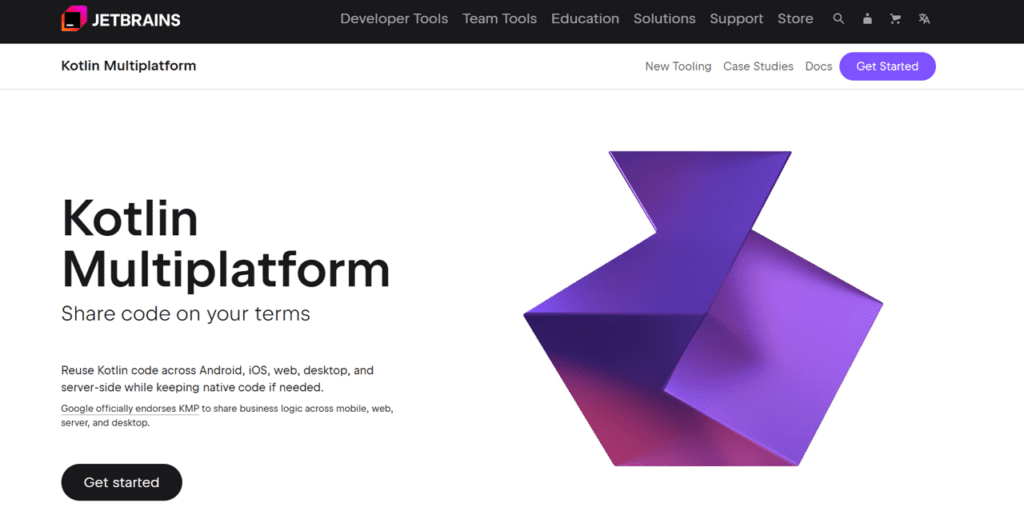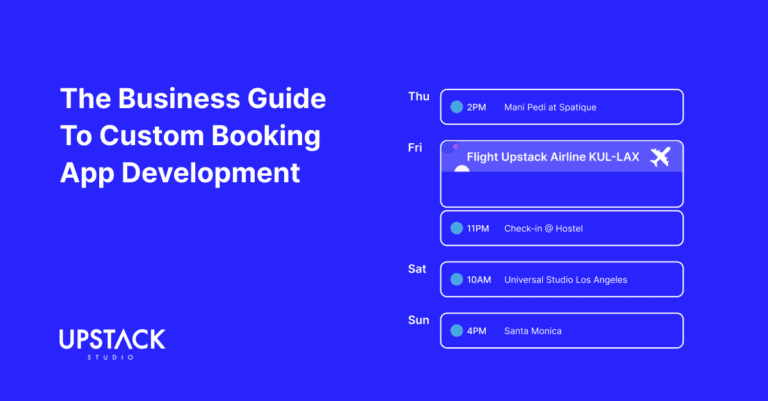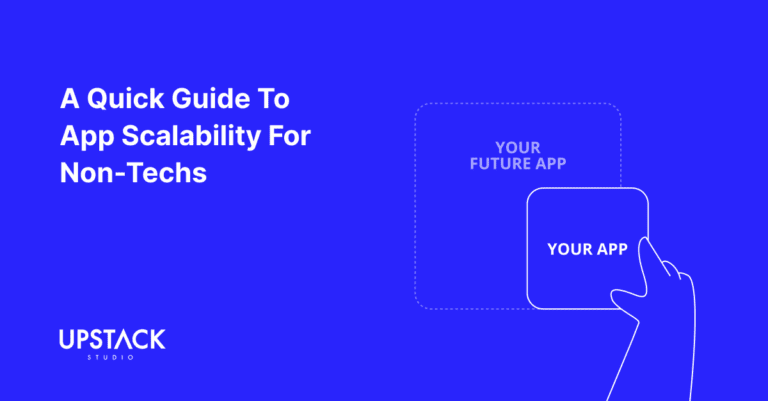A mobile app development framework is a library that provides the foundational structure needed to create mobile applications for specific platforms.

Think of it as a blueprint that simplifies and speeds up the app development process. These frameworks fall into three main categories:
- Native Apps: Built specifically for a single platform or device.
- Cross-Platform Apps: Designed to work across multiple platforms, offering cost and time efficiency.
- Progressive Web Apps (PWAs): Web apps that provide a native-like experience across all devices and platforms.
Cross-platform frameworks are popular due to their balance between cost and performance, and below we explore the top five frameworks for mobile app development.
React Native

Created by Meta (formerly Facebook), React Native is a widely recommended framework for cross-platform app development and popular amongst big companies across industries.. It uses JavaScript and React to create native-like apps from a single codebase.
Benefits:
- Code reusability reduces development costs.
- Compatible with third-party plugins.
- Hot deployment for instant updates.
- Optimized performance with reusable components.
Popular Apps: Instagram, SoundCloud, Uber Eats.
Flutter

Developed by Google, Flutter is a UI toolkit that enables developers to create visually appealing apps for mobile, desktop, and web platforms using a single codebase.
It’s commonly considered alongside React Native for similar projects, so if you’re wondering what the differences are, we’ve addresed them in our React Native vs Flutter comparison.
Benefits:
- Fully customizable widgets for intuitive UI.
- Strong material design and native performance.
- Fast development cycles using Skia rendering engine.
Popular Apps: Google Ads, Hamilton, SpaceX Go.
NET MAUI

Formerly known as Xamarin, .NET MAUI (Multi-platform App UI) is a .NET-based framework that enables native app development across Android, iOS, macOS, and Windows platforms.
Microsoft transitioned Xamarin to .NET MAUI, officially ending its support for Xamarin in favor of this unified framework.
Benefits:
- Single codebase for multiple platforms reduces development effort.
- Native API access ensures high performance and seamless integration with platform-specific features.
- Active developer community and strong support from Microsoft.
Popular Apps: OLO, Alaska Airlines, Storyo.
Ionic

Ionic is a powerful open-source framework that uses web technologies like HTML, CSS, and JavaScript to create cross-platform mobile apps. It offers a vast library of pre-built components to accelerate development.
Benefits:
- Single codebase for iOS, Android, and the web.
- Easy to integrate with Angular, React, and Vue.js.
- Large ecosystem and community support.
Popular Apps: MarketWatch, Just Eat, McDonald’s.
Kotlin Multiplatform

Kotlin Multiplatform allows developers to share code across Android and iOS platforms while maintaining the flexibility to write platform-specific code when needed.
Benefits:
- Code sharing between Android and iOS with minimal friction.
- Native performance with platform-specific optimizations.
- Full access to native APIs while writing cross-platform code.
Popular Apps: Square, Netflix, Pollen.
A Final Comparison Table
| Framework | Type | Developer | Year Released |
| React Native | Cross Platform | Meta | 2015 |
| Flutter | Cross Platform | 2017 | |
| NET MAUI | Cross Platform | Microsoft | 2022 |
| Ionic | Cross Platform | Ionic | 2013 |
| Kotlin Multiplatform | Cross Platform | JetBrains | 2017 |
Why the Same Frameworks Dominate ‘Top 5’ Lists
When it comes to frameworks, developers usually prioritize proven options over experimental ones, allowing them to prioritize building apps over troubleshooting tools.

That’s why if you’ve been researching mobile app development frameworks, you’ll see the same names regardless of which developer blog you visit – even developers who don’t personally use React Native respect it.
Choose the app developer, not the app framework!
If you’re looking to build a mobile application, check out our portfolio of past projects and contact us if you like what you see. Also, consider joining our mailing list for a one-stop resource on everything from micro-SaaS validation all the way to execution and promotion. Get a nifty list of questions to ask app developers when you sign up!
App Developer Interview Questions Template
Download this template now so you know exactly what to ask App Development Agencies! Let us know where should we send it through the form below.




